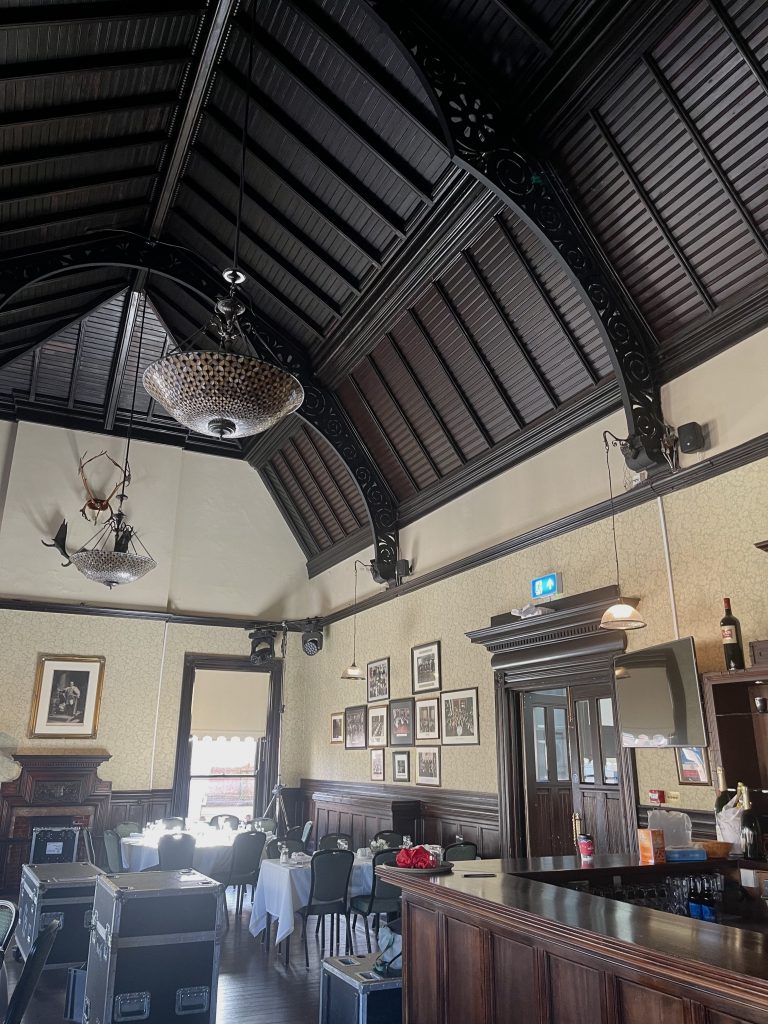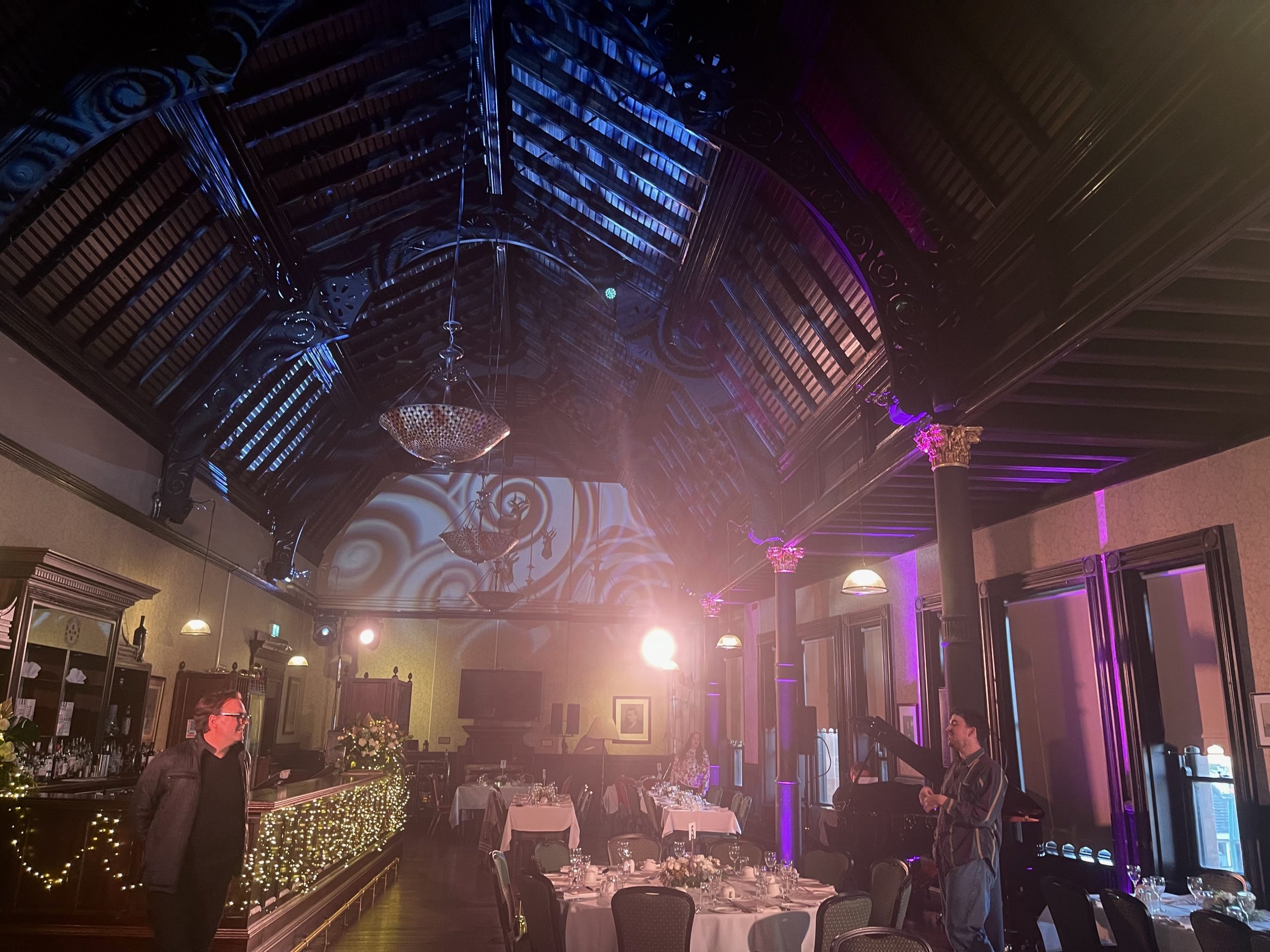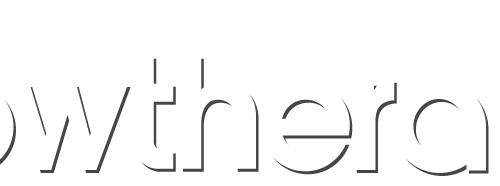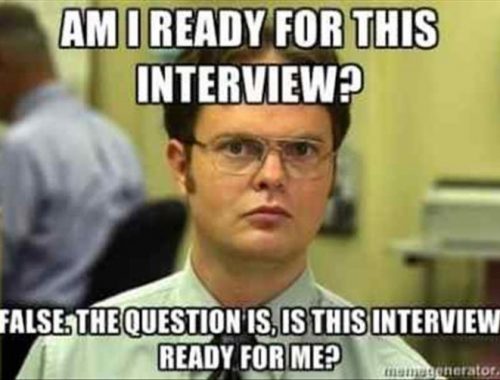Confidence is Key – My First Live Event in Audio
Summer is ideally a rewarding period of time where we can relax and reflect on the stresses of the last academic year. The realism of Summer, for me, was anxiety and doubt. I had not heard back from any companies I had inquired to about placement opportunities, or I had been offered limited contracts that would not give me the experience I sought after. It wasn’t until live-production company, Production Services Ireland (PSI), enrolled me onto their placement program that I realised that this is something I could envision myself doing following my degree.
My first meeting with John Hesketh, sole audio technician of the company, endowed me with that same anxiety and doubt. I had no experience in live sound, no concept of what to expect and an extremely minute frame of reference of the job. Via my degree in Music and Audio Production, I had minor experience of working in studios and within digital audio workstations but had never taken any modules pertaining to live sound. Promptly, those inclinations were put to bed when John and I discussed how we would proceed going forward.
When I commenced placement, I was overwhelmed but nonetheless excited to contribute anything I could to the work at hand. The complexities and tribulations of what goes into an event had never crossed my mind, nor the range of clients that a company such as this deals with. A lot of my introductory weeks, for instance, were spent cleaning and labelling flight cases, preparing cable lines for shows, learning about PA systems and speakers, and testing out the equipment for each show. It wasn’t until John asked me to aid him in an event for NI Opera that a sense of urgency and excitedness came over me.
By deploying Jasper’s ERA reflective model, I aim to assess the influence of my studies and learning at the workplace towards my first job as an audio technician. Jasper (2013, 1) cites reflective practice as “an essential tool to make the links between theory and practice”. The ERA cycle is a simple model in that an individual has three stages to consider: their experience; reflection and action taken. Taking into account various reflective models, I deemed this to be the most straight forward and concise method to convey reflection in the workplace.

Experience
The experience I have chosen as my case-study is my first event with PSI – an event for the NI Opera at the Ulster Reform Club. I was part of a three-person crew (myself, John, and a lighting technician). We convened at 10AM outside the venue, loaded in our equipment and began to install. I had no idea how long this process would take or where to begin – I had assisted in a portion of prep-work for this event a few weeks prior but this was for the performer’s headsets and ensuring they were working properly, something we could not do for a few hours until the performer’s arrived for their sound-check.
Following this un-certainty, I was also required to install the lighting as the technician had suffered a broken arm and could not lift the equipment properly. This resulted in more un-certainty but determination to get it right. Before I knew it, I was rapidly moving from one side of the room to the other, being in and out of various flight cases for different equipment and balancing what seemed like a million tasks at once. Suddenly, the performers had arrived for sound-check and much of my job was complete until the breakdown of the event.
Reflection
As detailed as my experience was described, there is one major item to un-pack from this. Confidence. Jasper (2013, 9) mentions that “very often we learn a great deal about ourselves by exploring how we act in one setting”. Keeping this in mind, I realise that I was able to conduct myself efficiently but lacked confidence. Time after time, I would make sure with my team that components, cables, and equipment were set in place properly even though these were repeated instances which should have left me confident in my approach. Although this displayed to me I could be efficient, it took valuable time away from my team having to check on my set-up process time and time again.
However un-warranted my uncertainties in this regard are, the experience gave me a first-hand account of the operation of a live show and its set up process. By the time the day was finished, and I was home, it was 1AM. As Rutter (2011, 3) states, “music is not a job – it is a lifestyle” and that is perhaps the most important aspect of this experience that I could reflect on. I was not accustomed to a day of work this long, but it was worth it to see the event proceed without any issue and to have contributed to something in my field.
Action
What action will I take? Firstly I will continue to develop my skills through work-based learning as a practitioner of audio. Secondly, to become more knowledgeable in the equipment we use as it is extremely common among every event. An immediate action I can take is to ask more questions during placement and note down, in detail, certain strategies towards the preparation of varying audio systems. Most importantly however, an action I intend on taking is utilising this experience to ensure that I am prepared for the next event and that I manage myself in a more confident manner.


Bibliography
Jasper, M. (2013) “Chapter 1 – What is Reflective Practice?,” in Beginning reflective practice. Andover: Cengage Learning, pp. 1–9.
Rutter, P. (2011) “Chapter 1 – Introduction ,” in The Music Industry Handbook. London: Routledge Taylor & Francis Group, p. 3.
You May Also Like

The World of Theatre upon Reflection
30 November 2022
Working with a Production House
30 November 2022
